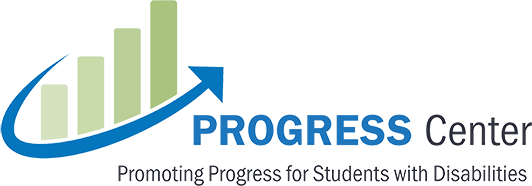Andrea Boykin, PhD, a manager of assistive technology (AT) for the District of Columbia Public Schools (DCPS), explains the process for identifying the proper assistive technology for students. She sees progress in finding just the right AT needed for a student’s successful access to curriculum and communication. As a former special education teacher and researcher in the field of AT, she uses her experience to develop policies and procedures for AT. She also supports the decision-making process and implementation of AT tools across the district.
Sometimes PROGRESS requires doing whatever is necessary. This video highlights Gladys Short, a veteran special educator, and Jonathan, one of her students, from a tribal charter school in North Carolina. This story explains how they helped each other to see progress during the uncertainty of COVID-19.
In collaboration with the National Center on Intensive Intervention, the PROGRESS Center has launched a new learning module library that includes a collection of self-paced learning modules designed to support professional learning of pre-service and in-service educators and administrators through just in time, self-directed, self-paced learning.
Once an IEP team has outlined the measurable annual goals for a child’s IEP, members must describe how the child’s progress toward meeting those goals will be measured and shared with parents.
This tip sheet introduces the explanation of educational setting. It includes a brief summary of federal regulations, tips for implementation, and additional resources. Check with your state for additional requirements.
The May 2021 PROGRESS Newsletter was recently released. This newsletter includes information on upcoming and recent PROGRESS Center webinars, new IEP Tip Sheets focused on the Statement of Services and Aids, A report reviewing national trends in State Education Agency guidance on special education, and a Stories from the Classroom video focused on taking a risk to ask for help.
Did you know that private schools are supporting an increasing number of students with individual learning needs and disabilities each year? In this webinar, All Belong Center for Inclusive Education, which has supported more than a hundred nonpublic schools over the past 40 years, presents five keys to inclusive education that benefit all students. Local private school educators will share how they implement the keys to success to get results. The session will close with freely available resources that can support private school educators in promoting success.
